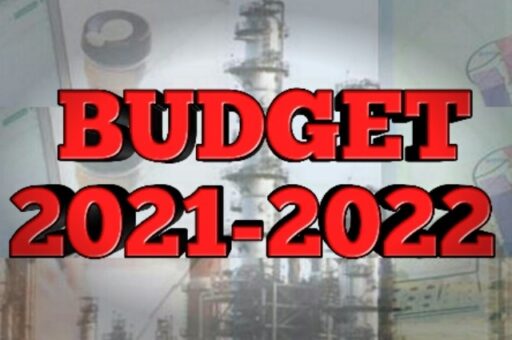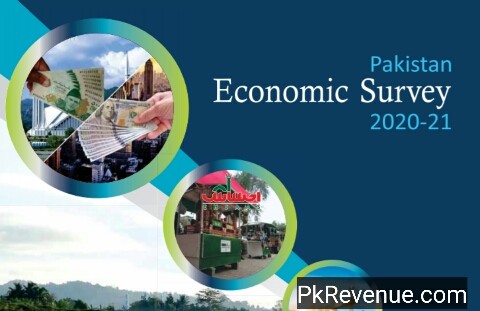ISLAMABAD: Pakistan has achieved GDP growth of 3.94 percent during outgoing fiscal year 2020/2021 owing to prudent policies adopted by the government amid hostile Covid-19 situation, which had hit hard the world economies, Finance Minister Shaukat Tarin said on Thursday while launching Economic Survey of Pakistan.
The minister said that there were 2.1 percent growth projections for the current fiscal year, while the world financial institutions including World Bank and International Monetary Fund (IMF) had forecasted even lower growth.
However, the minister added, due to the timely interventions and prudent policies by the government, the GDP witnessed remarkable growth of 3.8 percent.
He said that the government had provided incentives to manufacturing sector and facilitated businesses by providing incentives in gas and electricity besides making interventions in agriculture sector, which helped positive development towards growth.
He said that the Large Scale Manufacturing witnessed growth of 9 percent, while agriculture sector also grew by 2.77 percent, whereas the overseas Pakistani workers’ remittances have crossed $26 billion and are expected to go up to $30 billion.
He said that the government had tackled the Covid-19 pandemic in a wise manner , due to which, Pakistan had been witnessing growth at a time when the world economies were facing difficulties.
However, the minister said that Pakistan became net importer of wheat and sugar which has put burden on current account balance, however added that the country’s exports were witnessing growth.
He said that although inflation has gone up, but as compared to other world countries it was comparatively low in Pakistan adding that the government was making all out efforts to bring it down and provide relief to the common people.
Finance Minister, Shaukat Tarin informed that COVID-19 Pandemic had badly hit the working population as the number of working people came from 57.74 million to 35 million, depriving over 20 million from their jobs and livelihood.
However, he said that policies introduced by the Prime Minister to reduce the after-effects of the pandemic, the number of working population started to enhance and reached again up to 50 million by October 2020, hence helped in regaining the economic activity in the country.
In order to sustain the local economy, he said government had taken timely decisions and announced special incentives for different sectors of national economy including manufacturing, construction and agriculture sector. Due to incentives of the government, large scale manufacturing industry grew by 9 percent, agriculture sector witnessed 2.77 percent growth while the major crops like wheat, rice, sugarcane and maize production touched the higher numbers and bumper crops were produced during the season.
Meanwhile, worker remittances observed unprecedented growth and reached to $26 billion, which was showing the confidence of overseas Pakistani on the leadership of Prime Minister Imran Khan, he remarked.
Finance Minister said that the increasing trend in foreign remittances had also helped overcoming the negative impacts of current account deficit, which was swelled mainly due to increase in the imports of food commodities including wheat, sugar, edible oil and others.
Shaukat Tarin said that foreign exchange reserves with the State Bank of Pakistan increased, while $1 billion was deposited through Roshan Digita Account.
He said that the government had strived to fulfill the requirement of Financial Action Task Force.
He expressed optimism on increasing revenue collection of Federal Board of Revenue , saying that it touched Rs4.2 trillion during last 11 months, which was higher than 18 percent as compared the collection of corresponding period of last year.
FBR collection witnessed about 18 percent growth on year on year basis, he said adding that revenue collection witnessed about 50-60 percent growth on month-on-month basis in last four months, adding that due to that trend next year collection was fixed at Rs5.8 trillion.
First time in the last five years, the primary balance was in surplus, he said adding that food inflation was high which was affecting common man in the country but it was correlated with some international fluctuation in food commodity market.
He said that Pakistan was importing wheat, sugar, pulses and edible oil and prices of these commodities in international market went up manifold, adding that government was bearing the shocks and was not passing the impact on masses directly.
In order to bring stability in daily used commodities as well as controlling rising inflation, he said government in its current budget was paying special attention on agriculture sector to enhance output of agriculture produces in the country.
To discourage artificial effect of increasing pricing of food commodities, he said that measures would be taken to improve local prices mechanism and marketing facilities, besides setting up the storage facilities to break the nexuses of hoarders and profiteers.
About the debt, Train said that debt payment increased from Rs1,500 to Rs3,000 as on total debt was stood at Rs 31 trillion out of which Rs 25 trillion was local debt and 12.5 trillion was foreign debt, adding that in 2020-21 Rs1.7 trillion increased.
He said that debt growth during current financial was half compared to the last year.


